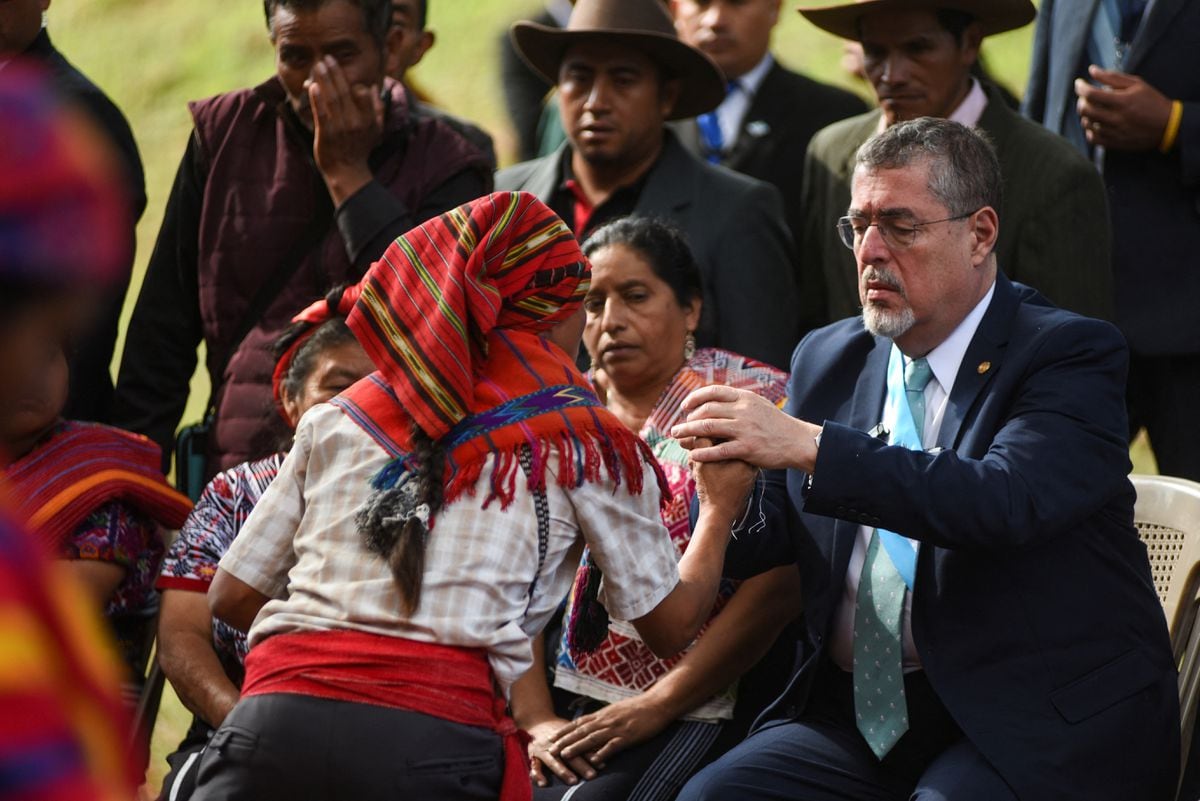Some of the renowned indigenous leaders who led the October protests in Guatemala and who held a historic 104-day sit-in outside the headquarters of the Public Ministry (MP) as a measure to demand the resignation of the attorney general, Consuelo Porras, and to defend the victory at the polls of President Bernardo Arévalo, they seek to occupy the departmental governorships and be the link for the next four years between the Executive and the municipalities.
Arévalo has been in office for a month and, as part of his campaign promises to fight corruption, he decided as one of his first actions to “make transparent” the election process for departmental governors.
In Guatemala, 22 governors and their alternates are elected every four years, who are the link between the central government and the municipalities.
These people had until now been chosen by the president without further oversight and almost by cronyism, but the new president decided that the election will be under public scrutiny.
On January 29, the Government published in the official gazette a Government Agreement with modifications to the regulations of the Law of the Urban and Rural Development Councils.
They added three points to one of the articles to allow the call to be public with the requirements included: creation of a shortlist that will evaluate the documentation, publication of the list of candidates and that civil society has three days to present objections;
Finally, the evaluation commission must, by majority, choose a list of five candidates for each department that will be delivered to Arévalo.
Territorial approach to development
With these changes, the councils received paperwork from 1,516 people seeking office.
“It is the first time I have participated.
The indigenous authorities, motivated by the event that took place last year in the defense of democracy that culminated in stopping a coup d'état, spoke to me so that I could represent them," Luis Pacheco, former president of the 48 Cantons one of the largest indigenous organizations in the country.
Indigenous leaders protest in front of the headquarters of the Public Ministry (Prosecutor's Office) to demand the resignation of the attorney general, Consuelo Porras, in Guatemala City (Guatemala).
On January 12, 2024. Mónica González Islas
Apart from Pacheco, other leaders who stand out from that long list of candidates are Angelina Aspuac, a Kaqchikel Mayan and one of the founders of the National Movement of Weavers or Rigoberto Juárez Mateo, ancestral authority of the Q'anjob'al people, who was imprisoned for opposing the installation of the Spanish hydroelectric company Econer Hidralia Energía, owner of Hidro Santa Cruz.
“They (governors) preside over the Departmental Development Councils and around 4,000 million quetzales, about 500 million euros, are managed there,” explained Luis Linares, a Guatemalan analyst at the Social Studies Research Association (Asies).
“With these funds, municipalities execute projects,” he says.
According to the expert, for many years there has been intervention by district deputies on the governor and these on the mayors to “condition” the contracting of public works for their loved ones.
“It became a source of corruption and it seems that the current Government proposes a territorial approach to meet the needs of the population and promote development,” he added.
Opposition deputies in Congress have warned that they could challenge the gubernatorial election process and have suggested that Arévalo changed the call because he “agreed” with the indigenous leaders due to the support he received during last year's protests.
"You are wrong.
It is not a favor payment, the procedures established by law are being completed, fulfilling the requirements that came out in the calls.
But no, it is not a favor payment,” Pacheco responded.
When Arévalo appointed his Cabinet before his inauguration, he was criticized by indigenous organizations that felt excluded, after only one Mayan woman occupied one of the 14 ministries.
The president accepted that he lacked more representation of the indigenous peoples, but assured that they would occupy vice ministries and other positions in the Government.
For his part, Víctor Hugo Godoy, executive secretary of the Presidency, commented in a radio interview that what is intended is to build the institutionality that “was dismantled for 40 years.”
This week the list of candidates was known and they are in the period of reception or presentation of objections, a process that will continue its course in the following days.
At the beginning of March, Arévalo must receive the final list refined by the evaluating shortlists to select the new governors.
Follow all the information from El PAÍS América on
and
X
, or in our
weekly newsletter
.

